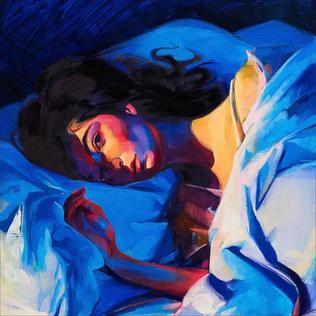The early 2010s were a beautiful time for pop music. Songstresses like Lady Gaga, Taylor Swift and Katy Perry kept the genre alive by pumping out award-winning albums with numerous hit singles in thousand-dollar studios with world-renowned producers.
Then Lorde’s “Pure Heroine” came along in 2013 and shook the pop formula. Created in a small studio in New Zealand with little-known producer Joel Little, the album showed that artists didn’t need money, heartbreak or love to make a hit.
Lorde has followed in this album-length statement trend with “Melodrama,” her sophomore album that, according to an interview with The New York Times Magazine, tells the story of a single house party. Despite this, at its heart, “Melodrama,” released on June 16, is a pop album reminiscent in theme to “Teenage Dream” and “1989,” but more interesting and ambitious, carrying the pop princess torch, but with smart lyrics, heavy drum beats, synthesizers and slick production by Bleachers frontman Jack Antonoff.
The album opens with “Green Light,” a dance-y track featuring a syncopated piano beat. It’s the kind of song that makes you hit the dance floor when it comes on at the bar. And, with snarky, catchy tracks like “Sober,” “Homemade Dynamite” and the saccharine, romantic “The Louvre” following it, “Melodrama” seems like a happy album about having fun, fooling around and disobeying your parents.
That’s when “Liability” — about the all too familiar feeling that you’re a burden on everyone within a two-mile radius — changes the trajectory of the entire album.
Lorde came to this house party to get lucky, but now it’s 3 a.m. and she’s getting kicked out and crying as she stumbles home. From here, “Melodrama” focuses on the aftermath of meeting someone, realizing they’re a different person and subsequently ending up alone.
Beginning with a “Royals”-esque beat, in “Hard Feelings/Loveless” Lorde licks her wounds and her poet lyricism comes alive, singing, “I care for myself the way I used to care about you.” That doesn’t last last for long, when she launches into full-on “Lemonade” mode with the second half of the song, singing that she’s going to be outspoken and wreck her lover’s life.
She follows in her “Lemonade”-ing with “Writer in the Dark,” which touches upon an incredibly common theme in pop music — writing songs about past loves. It’s a possessive, unapologetic and crazed ballad, with the breakup song serving as an inevitable catharsis for the wronged party.
“Supercut,” about only remembering the good times of a relationship and not the bad, sounds like it could come right off of Swift’s “1989,” but that’s not surprising considering Jack Antonoff also produced that album.
Next comes “Liability (Reprise),” a synthy opposite of the fifth track of the same name. If the album describes a personal journey, then “Liability (Reprise)” is Lorde’s recognition. She sings “But you’re not who you thought you were” as soulfully as “Liability” but more defiantly, like she knows new things after soul-searching.
Rounding out the album is “Perfect Places,” a piece of pop decadence that’s surprisingly pathetic and echoes the social anxiety and teen boredom she sang about in “Pure Heroine.”
Over distorted guitars, drums and synthesizers, she anxiously sings, “All of our heroes fading / Now I can’t stand to be alone.”
She takes on party culture — needing drugs, sex and alcohol in order to have a good time — and says no “Perfect Places” exist when those are involved. The party is over and Lorde has learned a thing or two after a night of raging.
In a drought of quality pop music in 2017, Lorde’s “Melodrama” is the fuel that the genre needs to sustain itself. It doesn’t need “consciousness” like Perry’s “Witness” or a post-modern genre revival like Bruno Mars’ “24K Magic.” It just needs a simple hook, good lyrics and some heart — all abundant in “Melodrama.”



